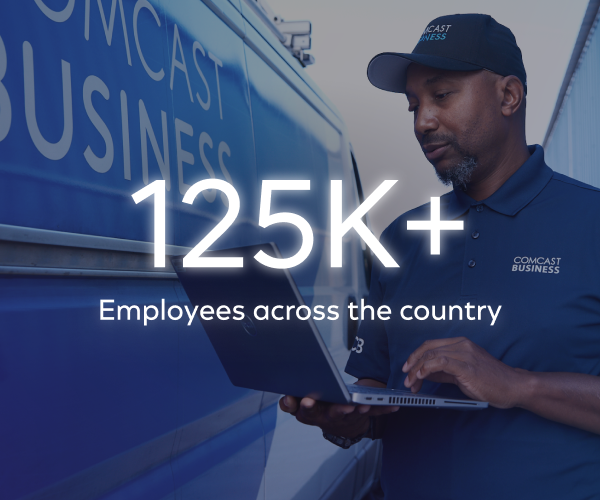PRESENTED BY

IN THIS EDITION
Democrats ask: Why would we help Trump and the Republicans?
The first delay: House Budget panel likely to punt markup over spending cuts
Senate GOP aims for five Trump confirmations this week
News: NRSC posts best-ever January off-year fundraising
The Vault: Arnold Ventures launches push for offsets in reconciliation
THE TOP
Democrats ask: Why would we help Trump and the Republicans?

Happy Monday morning.
It is said that for every action there is an equal and opposite reaction.
President Donald Trump, Speaker Mike Johnson and Senate Majority Leader John Thune might be about to find that out.
Government funding runs out on March 14, just 39 days from now. And with a one-vote margin in the House and the 60-vote threshold in the Senate, GOP congressional leaders desperately need Democratic support to keep federal agencies open.
But Trump’s unilateral decisions to begin to have the State Department take control over (at least temporarily) the United States Agency for International Development, impose stiff new tariffs on Canada, Mexico and China and strip deportation protection for hundreds of thousands of Venezuelans has left Democrats wondering whether it’s still politically feasible to help Republicans conduct any normal business on Capitol Hill.
Sen. Patty Murray (D-Wash.), the top Democrat on the Senate Appropriations Committee, said this to us:
“Democrats are, as always, committed to responsibly funding the government, but it is extremely difficult to reach an agreement on toplines — much less full-year spending bills — when the president is illegally blocking vast chunks of approved funding, when he is trying to unilaterally shutter critical agencies, and when an unelected billionaire is empowered to force his way into our government’s central, highly-sensitive payments system [at the Treasury Department]. Democrats and Republicans alike must be able to trust that when a deal gets signed into law, it will be followed.”
And here’s what one senior House Democratic aide told us about the political dynamics, echoing Murray’s view:
“The things they are doing play to their base — they are not putting pressure on us to cooperate. [Decisions like these] increase our needs, which makes coming together harder. We could get to a tipping point where bipartisan cooperation becomes an overwhelming negative for us.”
This isn’t an idle point. There is a decade-plus of evidence that House Republicans can’t pass government-funding bills on their own, even with big majorities. Two out of the last three GOP speakers lost their jobs during government funding fights. And as early as next week, Rep. Elise Stefanik (R-N.Y.) will resign from the House to serve as U.S. ambassador to the United Nations, narrowing Johnson’s majority to 217-215 until April.
Plus, Trump wants Congress to raise the debt limit until 2029, which will require Democratic cooperation in both chambers. California also is expected to need tens of billions of dollars in federal help to recover from last month’s devastating wildfires.
Democrats are asking what’s in it for them politically to help enact all these must-pass bills while Trump picks trade wars, slashes Medicaid and other social programs and fires thousands of federal workers.
How Democrats want to tie Trump’s hands. Rep. Rosa DeLauro (Conn.), top Democrat on the House Appropriations Committee, said in an interview that Trump’s decision last week to freeze all federal grants and loan programs — withdrawn after a huge uproar — plus the confusion over what’s happening at USAID hurts America’s standing in the world.
“The move is contrary to national security,” DeLauro said. “I really believe our adversaries — China, Russia, Iran — are hoping that the Trump administration somehow doesn’t put the kind of focus and attention on the work of USAID. The work saves lives.”
Yet despite the controversies, DeLauro is still hopeful that the two sides can reach a deal over FY2025 government funding. DeLauro and Murray are insisting that any agreement boost spending by 1% over the enacted FY2024 bills. GOP leaders will face heavy pressure from their right if they go along with that, though.
“I am very strongly in favor of us moving forward,” DeLauro said. “We have to move forward on a topline, do the allocations for the subcommittees and do the bills that we can get done by March 14. Congress cannot give up and walk away from what our responsibilities are.”
Democrats, though, would also like to see language in any agreement saying the Trump administration “must” spend the funds as mandated by Congress, according to Democratic aides. This is an attempt to stop the White House — particularly OMB director nominee Russell Vought — from “impounding” funds approved by Congress and signed into law, a direct challenge to Congress’ power of the purse.
With roughly $30 billion in annual funding, USAID is tiny compared to the Pentagon or other departments. Yet the MAGA movement has long focused on cutting foreign aid.
Hill Republicans said Secretary of State Marco Rubio has assumed responsibility for USAID operations temporarily. It’s unclear how much Rubio will be involved in day-to-day decision-making there.
Mega-billionaire Elon Musk, who is running the unofficial “Department of Government Efficiency,” attacked USAID on X.com Sunday after two DOGE officials were initially rebuffed from gaining access to personnel files and other classified information. Two USAID security officials were put on leave over the incident, CNN reported.
— Jake Sherman and John Bresnahan
The Daily Punch 🥊 With new episodes every weekday morning, The Daily Punch brings you inside Capitol Hill, the White House and Washington all in less than 15 minutes. Listen to today’s episode now.
PRESENTED BY APOLLO GLOBAL MANAGEMENT
America’s next chapter of growth requires bold investment. Over the next decade, an estimated $75 to $100 trillion in CapEx will be needed to modernize and meet the capital needs of American companies. This unprecedented level of investment goes beyond the scope of traditional financing sources. Apollo’s flexible capital solutions are helping to create jobs, finance critical infrastructure, and drive long-term economic growth.
THE TRUMP AGENDA
The first delay: House Budget panel likely to punt markup over spending cuts
The House Budget Committee is unlikely to mark up a budget resolution this week, the first setback for Speaker Mike Johnson’s quest to enact President Donald Trump’s agenda, according to GOP leadership sources and lawmakers.
Hardline conservative House Republicans are “not even close” to a deal on the magnitude of spending cuts they expect in the reconciliation package, one lawmaker told us. House Budget Committee members held a call on Sunday to discuss the latest updates.
Johnson and House Majority Leader Steve Scalise have laid out an aggressive schedule to pass the bulk of Trump’s agenda, which had the Budget Committee slated to mark up the resolution to unlock reconciliation this week. Johnson said he expected the House to pass the resolution the week of Feb. 10. And he wanted the House and the Senate to wrap up consideration of the budget resolution by the end of the month.
The delay, although not at all fatal for Trump’s agenda, does speak to larger problems inside the House Republican Conference when it comes to just how deeply the GOP intends to cut spending — if it can.
Trump has said that Republicans can’t make changes to Social Security or Medicare as part of the reconciliation package (the rules don’t allow it anyway for Social Security), which leaves GOP lawmakers with only a part of the annual budget from which they can look for savings. As we noted in The Vault Sunday, House Republicans are looking at counting potential revenue from Trump’s new tariffs on China, Mexico and Canada as they consider the reconciliation bill’s deficit impact, even though the revenue wouldn’t come from congressional action.
But the House Republican Conference is a politically complicated place. Although it’s dominated by the hardline conservatives, Johnson’s slim one-seat margin means that the GOP can’t cut too deeply or they risk losing the middle of the conference. It’s a nearly impossible needle to thread.
The delay also will reignite other uncomfortable conversations for Republican leaders. Can the House pass a budget resolution at all? And, furthermore, will the Senate begin to move its own budget resolution and jam the House — without the steep cuts that the House GOP is demanding?
Another question. One of the big questions that GOP leaders need to settle in the budget resolution is the baseline Republicans use to calculate the cost of extending the 2017 Trump tax cuts.
This has been a key point of conversation — and contention — among House Republicans.
The GOP is looking to the Senate parliamentarian for guidance. That’s because the “current policy baseline” that top Republican tax writers want to use to make permanent for the Trump tax cuts easier hasn’t been done in reconciliation before.
There haven’t been clear answers from the Senate side on the issue as of this week, and House Republicans may not want to move forward with the baseline without that certainty. Senior Republicans have also sought guidance on the matter from the legal counsels for the Congressional Budget Office and House Republican leadership offices.
But the Senate GOP could still switch the baseline later on if the parliamentarian gives a sense it’s a workable option.
The current policy baseline would mean that extensions of the Trump tax cuts that expire at the end of the year are considered zero-cost, rather than adding up to more than $4 trillion over a decade. But the big win would be a path to permanency for the signature Republican tax law, or at least key parts of it.
To meet Senate reconciliation rules, the bill won’t be able to increase budget deficits outside the 10-year budget window. Finding hundreds of billions of dollars per year in offsets for that period of time is likely impossible for Republicans. But if the extensions are considered cost-free, that eases the problem.
That doesn’t mean it’s a guarantee in the House, where every decision is fraught right now thanks to the chamber’s razor-thin majority.
— Laura Weiss, Melanie Zanona, Jake Sherman and John Bresnahan
Correction: An earlier version of this story incorrectly suggested Medicare cannot be altered through the reconciliation process. It can.
THE SENATE
Senate GOP aims for five Trump confirmations this week
When the Senate convenes on Monday, Republicans will resume their work to confirm President Donald Trump’s Cabinet nominees. If things go as hoped for Trump and Senate Republicans, they’ll confirm five of these nominees by this time next week — with the potential for a sixth.
The high-profile nomination of one of Trump’s most controversial picks — Robert F. Kennedy Jr. to be secretary of health and human services — will be taken up by the Senate Finance Committee on Tuesday morning, the panel’s chair, Sen. Mike Crapo (R-Idaho), announced on Sunday.
Sen. Bill Cassidy (R-La.) spoke with Kennedy over the weekend, we’re told. Cassidy delivered a dressing down of Kennedy’s vaccine beliefs on Thursday and said he was struggling with Kennedy’s nomination.
Cassidy’s support is critical. Republicans have a 14-13 margin on the Finance Committee. If Cassidy were to vote no, it would all but doom Kennedy’s chances for confirmation.
Following questions from Sens. Elizabeth Warren (D-Mass.) and Ron Wyden (D-Ore.), RFK amended his ethics filings.
The other cliffhanger is former Rep. Tulsi Gabbard (Hawaii) for director of national intelligence. Vice President JD Vance lobbied Sen. Todd Young (R-Ind.) and other Intelligence Committee Republicans to back Gabbard over the weekend.
At one point, Trump ally Elon Musk posted that Young was “a deep state puppet.” Musk quickly deleted the post after speaking to Young. Musk later declared the Indiana Republican “a great ally in restoring power to the people from the vast, unelected bureaucracy.”
Top Senate Republicans privately believe Sen. Susan Collins (R-Maine), the other swing vote on the Intel Committee, could support Gabbard, although Collins hasn’t said what she’ll do.
Now back to the Senate floor schedule.
After a vote tonight on a motion to proceed to executive session on OMB nominee Russell Vought’s nomination, the Senate will vote to confirm Chris Wright as energy secretary. Wright received 62 votes during an earlier procedural vote last week, so his confirmation isn’t in doubt.
After Wright is likely confirmed, senators will vote to invoke cloture on Pam Bondi’s nomination to be attorney general. If Democrats don’t yield back any of the 30 hours in post-cloture time, the vote to confirm Bondi would come very early Wednesday morning.
Next up — former Rep. Doug Collins (R-Ga.) to be secretary of veterans affairs. Collins, a former House member from Georgia, got 83 votes for cloture, so he’ll be confirmed easily.
Up next would be a cloture vote on HUD secretary nominee Scott Turner. If Turner is confirmed 30 hours later, then it would be time for Vought to be considered.
That would put Vought’s cloture vote at roughly 9 a.m. Thursday ahead of a potential 3 p.m. Friday confirmation vote.
RFK could be up after that, but any floor action on him could slide until next week.
— Max Cohen and John Bresnahan
SENATE MAP
News: NRSC posts best-ever January off-year fundraising
News: The NRSC raised $8.5 million in January, a record for the Senate GOP campaign arm in January of an off-year. But the NRSC remains in debt after a successful yet costly 2024 cycle where the Republicans won back the majority and flipped four seats.
In an NRSC memo circulated to Senate Republican chiefs of staff, NRSC Executive Director Jennifer DeCasper wrote that the group will “enter this cycle with nearly $24 million in debt and unpaid bills from last cycle and limited cash on hand.”
The NRSC finished the year with $2.7 million cash on hand.
“Winning is expensive,” DeCasper wrote. “This is why your engagement and participation is so important.”
What’s next: Republicans control 53 seats heading into the 2026 midterms. It’s unlikely that Democrats could regain control of the chamber in the midterms, but Republicans nonetheless have to defend several incumbents, including potentially blockbuster races in North Carolina and Maine.
However, Senate Republicans did get a pick-up opportunity in Michigan following the recent retirement announcement by Democratic Sen. Gary Peters. And in Georgia, Democratic Sen. Jon Ossoff could face a tough reelection fight if GOP Gov. Brian Kemp runs.
“With the races in Ohio and Florida added to the plate, we are looking at what we expect to be the most expensive mid-term for Senate Republicans in history,” DeCasper says in the memo.
Raskin staff move: Marcus Childress is the new special counsel for investigations and senior adviser for House Judiciary Committee Democrats. Childress, who worked as an investigative counsel for the Jan. 6 select committee, most recently served as a partner at Jenner and Block.
In other Judiciary news, Rep. Jamie Raskin (D-Md.) is leading a letter requesting the Justice Department release the second volume of former Special Counsel Jack Smith’s final report.
Downtown Download. Matthew Turkstra is joining Citigroup as a new director of federal government affairs with a focus on tax policy. Turkstra previously worked for the Associated General Contractors of America, where he led the group’s advocacy efforts around the 2017 Trump tax cuts.
— Max Cohen, Brendan Pedersen and John Bresnahan

The Vault: Arnold Ventures launches push for offsets in reconciliation
First in Punchbowl News: Arnold Ventures is rolling out a new set of 20 proposals for Republicans to cut spending and address “tax loopholes” that could offset the cost of extending the Trump tax cuts.
The document pitches a range of options with estimates for how much they’d save — from repealing Democrats’ expansion of electric vehicle credits to capping businesses’ state and local tax deductions.
The group’s billionaire founders, John and Laura Arnold, will be on Capitol Hill meeting with members of Congress this week to talk about the new proposals. Read the new report here.
{if (profile.vars.Memberful_punchbowlnews_Plan_Premium_Policy_The_Vault_I_103061 == true || profile.vars.Memberful_punchbowlnews_Plan_Premium_Policy_The_Vault_II_103417 == true || profile.vars.Memberful_punchbowlnews_Plan_Premium_Policy_The_Vault_III_103418 == true || profile.vars.Memberful_punchbowlnews_Plan_Premium_Policy_The_Vault_14_Day_Trial_103643 == true || profile.vars.Memberful_punchbowlnews_Plan_Punchbowl_News_Premium_Portal_The_Vault_Tech_121727 == true || profile.vars.Memberful_punchbowlnews_Plan_Punchbowl_News_Premium_Portal_The_Vault_Tech_121821 == true || profile.vars.Memberful_punchbowlnews_Plan_Punchbowl_News_Premium_Portal_Premium_Policy_The_Vault_121726 == true || profile.vars.Memberful_punchbowlnews_Plan_Punchbowl_News_Premium_Portal_Premium_Policy_The_Vault_121823 == true || profile.vars.Memberful_punchbowlnews_Plan_Punchbowl_News_Vault_Tech_126214 == true || profile.vars.Memberful_punchbowlnews_Plan_Punchbowl_News_Vault_Tech_126263 == true || profile.vars.Memberful_punchbowlnews_All_Access_Pass == true)}
{else}

You’re seeing a preview of our Premium Policy: The Vault financial services and tax policy coverage. Read the full story by subscribing here.
{/if}
MOMENTS
ALL TIMES EASTERN
2 p.m.
House Minority Leader Hakeem Jeffries will hold a press availability in Brooklyn, N.Y.
3:45 p.m.
Senate Minority Leader Chuck Schumer will hold a news conference on Elon Musk.
CLIPS
NYT
“Trade War Heats Up After Trump Orders Tariffs and Canada Retaliates”
– Matina Stevis-Gridneff in Toronto, Keith Bradsher in Beijing and Susan Hopkins
WaPo
“Rubio threatens Panama’s president over canal, saying status quo is ‘unacceptable’”
– John Hudson in Panama City
PRESENTED BY APOLLO GLOBAL MANAGEMENT
America’s next chapter of growth requires bold investment. Over the next decade, an estimated $75 to $100 trillion in CapEx will be needed to modernize and meet the capital needs of American companies. This unprecedented level of investment goes beyond the scope of traditional financing sources. Apollo’s flexible capital solutions are helping to create jobs, finance critical infrastructure, and drive long-term economic growth.
Editorial photos provided by Getty Images. Political ads courtesy of AdImpact.
We extended our network to over 1.25 million new homes and businesses just in the last year and are on track to do the same this year. Learn more.

Crucial Capitol Hill news AM, Midday, and PM—5 times a week
Join a community of some of the most powerful people in Washington and beyond. Exclusive newsmaker events, parties, in-person and virtual briefings and more.
Subscribe to Premium
The Canvass Year-End Report
And what senior aides and downtown figures believe will happen in 2023.
Check it outEvery single issue of Punchbowl News published, all in one place
Visit the archiveComcast employees are delivering top broadband, mobile, and entertainment across the country. Learn more.











